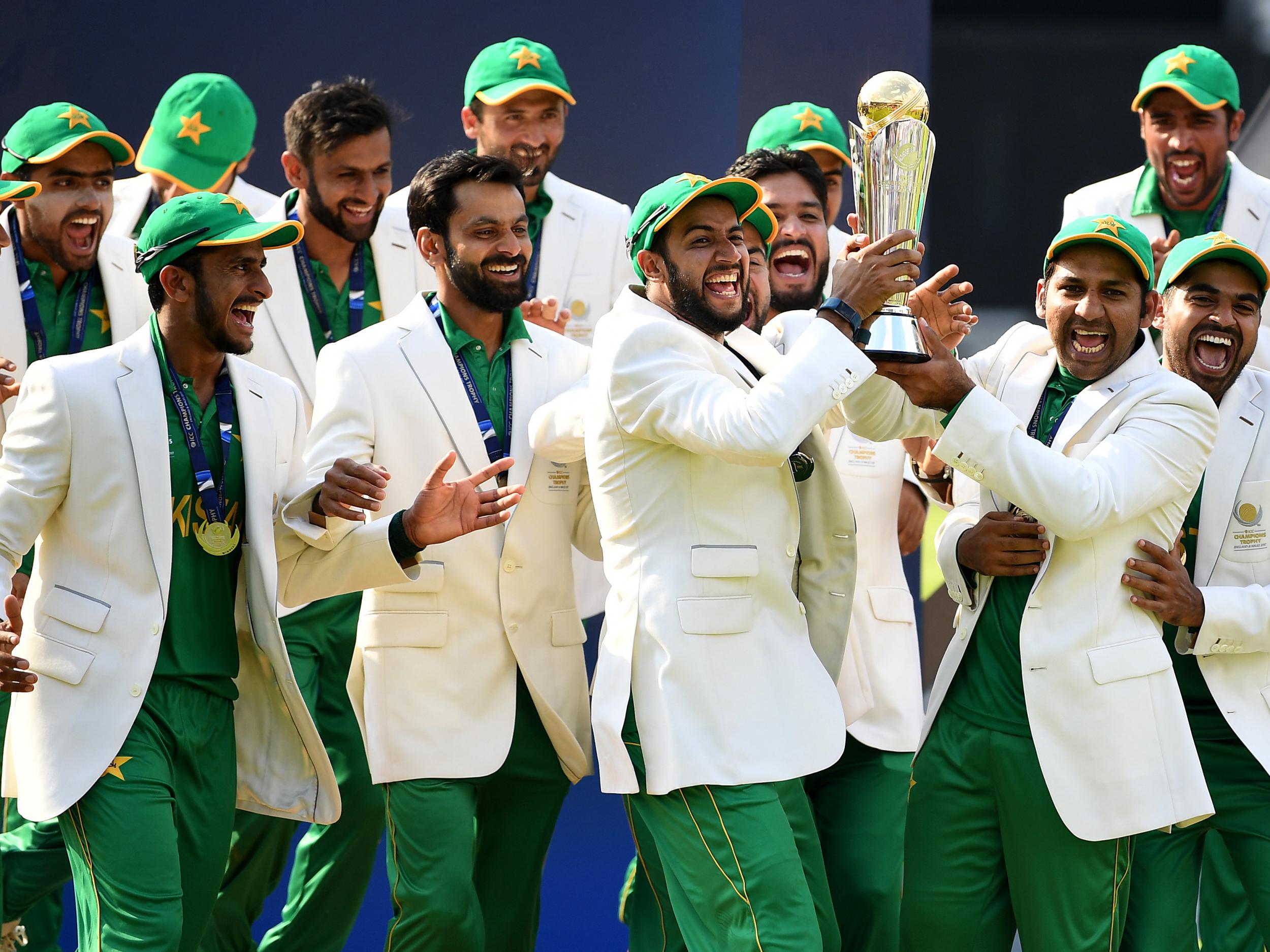Steadying foundations of the Pakistan Super League behind nation's dizzying Champions Trophy success
If you look past the captivating storybook redemption of Mohammad Amir’s deadly opening spell in the final against India, then the paw prints of the PSL are all over Pakistan's triumph

As sporting turnarounds go, Pakistan’s two-week metamorphosis from horribly inept to thrillingly victorious has been one of the most beguiling in recent memory.
They came into the Champions Trophy as its lowest-ranked team, players missing through corruption scandals and poor fitness and somehow managed to go downhill from there, losing to India by 124 runs in a contest that it feels generous to describe as one-sided.
Now they find themselves Champions Trophy winners, sweeping aside South Africa, Sri Lanka, England and ultimately India with a succession of increasingly thrilling performances – each possessing that dreamlike quality of being somehow more unlikely and yet more and more inevitable at the same time.
It is tempting to chalk Pakistan’s victory up to being nothing more than yet another chapter in their paradoxical cricketing history, the inexorable byproduct of a side who on the scale of cliched mercuriality rank higher than even the French rugby team.
However there is another factor beyond simply the ‘predictable unpredictability' of Pakistan that has been crucial to their Champions Trophy win – the Pakistan Super League – their franchise T20 competition that has run for the last two years.
If you look past the captivating storybook redemption of Mohammad Amir’s deadly opening spell, then the paw prints of the PSL are all over Sunday’s dramatic final.
Fakhar Zaman – swashbuckling, luck-stretching centurion against India – caught the eye in this year’s edition of the PSL, his fearless commitment to attempting to blast runs at the top of the order standing out even as his side failed to make the tournament’s knockout stages.
Shadab Khan prowled the point region like a Pakistani Ricky Ponting on Sunday and took the crucial catch to remove Virat Kohli, not to mention twin strikes with the ball that prevented India’s middle order from launching any significant fightback.
The 18-year-old, the youngest man to play in an ICC final, was the breakout star of this year’s PSL, earning huge praise from his coach Dean Jones who presciently declared him immediately ready for international cricket.
For Hassan Cheema, manager of Islamabad United, inaugural champions of the Pakistan Super League in 2016, the influence of the competition on Pakistan’s Champions Trophy success is obvious.
“I think the fact that there's a generation coming through which has exposure to playing in tight matches in front of decent crowds with and against major international players is pretty big for all of them,” he said. “Especially considering how little of that you will find in domestic cricket otherwise.
“It covers up a lot of cracks in the domestic game, it papers over them.”
However it is another man who has used the springboard of exposure in the PSL to greatest effect, Hassan Ali taking 3/19 on Sunday to finish the competition as its leading wicket taker, sealing the Man of the Tournament award in the process.
Only two players took more wickets than Hassan Ali in this year’s PSL, the fast bowler’s performances making him impossible to ignore for the Pakistan selectors – another perk of the T20 competition according to Cheema.
“Now these guys know that if they perform at the PSL they'll be in the national team, it won’t just be up to the whims of the selectors,” he said.
An advertisement for that sentiment is Rumman Raees, who produced some impressive breakout performances as one of the tournament’s designated ‘emerging players’ in the PSL’s maiden season and who built on that and established himself as a superb death bowler in this year’s edition – his international debut only not coming sooner through an unlucky combination of illness and injury.
Ultimately he made his ODI debut for Pakistan in their semi-final with England, handed the new ball as well, just to really ensure he wasn’t so much thrown in the deep end as catapulted into it.
Not even in the squad at the start of the tournament, Raees was nevertheless undaunted by the occasion, taking 2/44, including the crucial wicket of Alex Hales, going at just 4.88 an over – as clear an example as any of the impact that the PSL can have on the fortunes of a young Pakistani cricketer.
Pakistan’s 2017 Champions Trophy will live long in the memory, a self-parodic phoenix that rose from the ashes of humiliation to conquer all, but ultimately a campaign built on the increasingly steadying foundations of the Pakistan Super League.
Subscribe to Independent Premium to bookmark this article
Want to bookmark your favourite articles and stories to read or reference later? Start your Independent Premium subscription today.

Join our commenting forum
Join thought-provoking conversations, follow other Independent readers and see their replies